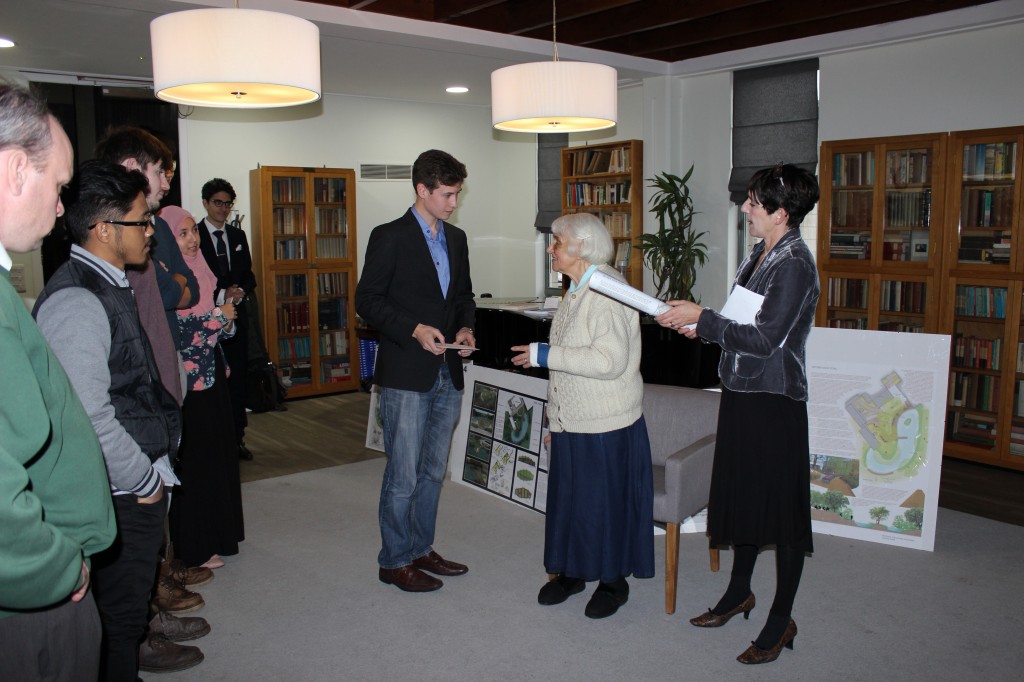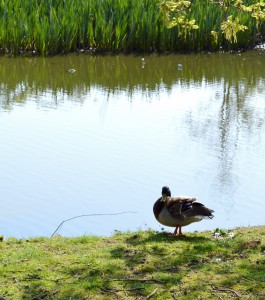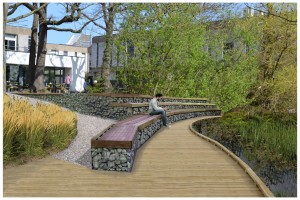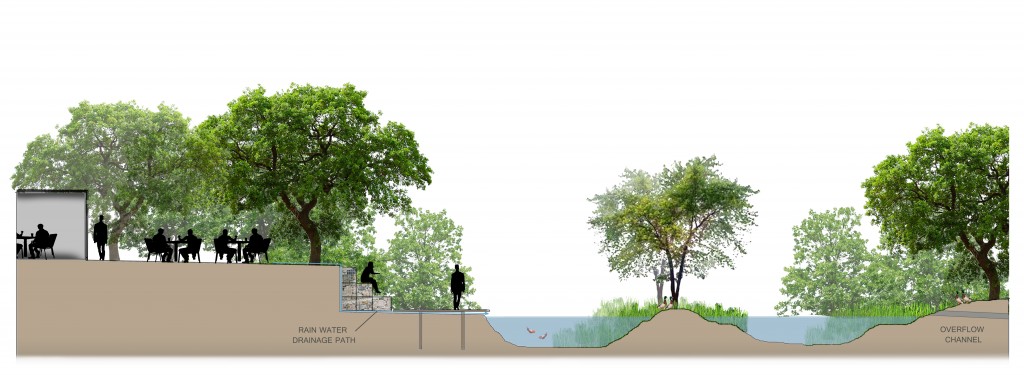By BA (Hons) Architecture student and winner Edward Powe
In the spring of 2014 the University of Kent invited its students to submit proposals to redesign a public space affectionately known as the ‘Duck Pond’ at the heart of Keynes College.
Being a resident of Keynes College at the time, I was aware first hand of the sites importance as a space for social interaction, but more importantly as a place of tranquillity amidst nature away from a frenetic daily student life. Therefore I embraced the opportunity to influence the redesign of the Duck Pond and ensure it is as valued by future students as it was by me.
My thought process began with the assessment of the different benefactors of the site, human or not, in order to understand their requirements – then facilitating these needs through the creation of three main zones. Beginning from a highly social terrace area adjacent to Dolche Vita, the proposal descends to a secluded boardwalk space on the water’s edge backed by gabion-constructed amphitheatre style seating. The transition space between these two areas uses long grasses and wild plants to create a natural looking environment intended to support the ‘non-human’ users of the site, namely the ducks, insects and other wildlife. This is with the intention that social interaction, private relaxation and wildlife can harmoniously co-exist alongside each other.
The over-riding concept of my design was that the closer you descend towards the water’s edge, the more private the spaces become, therefore the further you move away from the water, the more social the spaces become.
Having somewhere to go where you can stop, relax and think which is away from the hustle and bustle of university life is very important. It is equally important however to have access to an environment where you can meet, interact and socialise with friends, which is partly what university is about. For many people, including myself, the Duck Pond is and will continue to be that place. This competition has given me the rare opportunity to have a visual influence on a place which has been so important to my student life and hopefully encourage more people to take advantage of the benefits the Duck Pond can bring.




